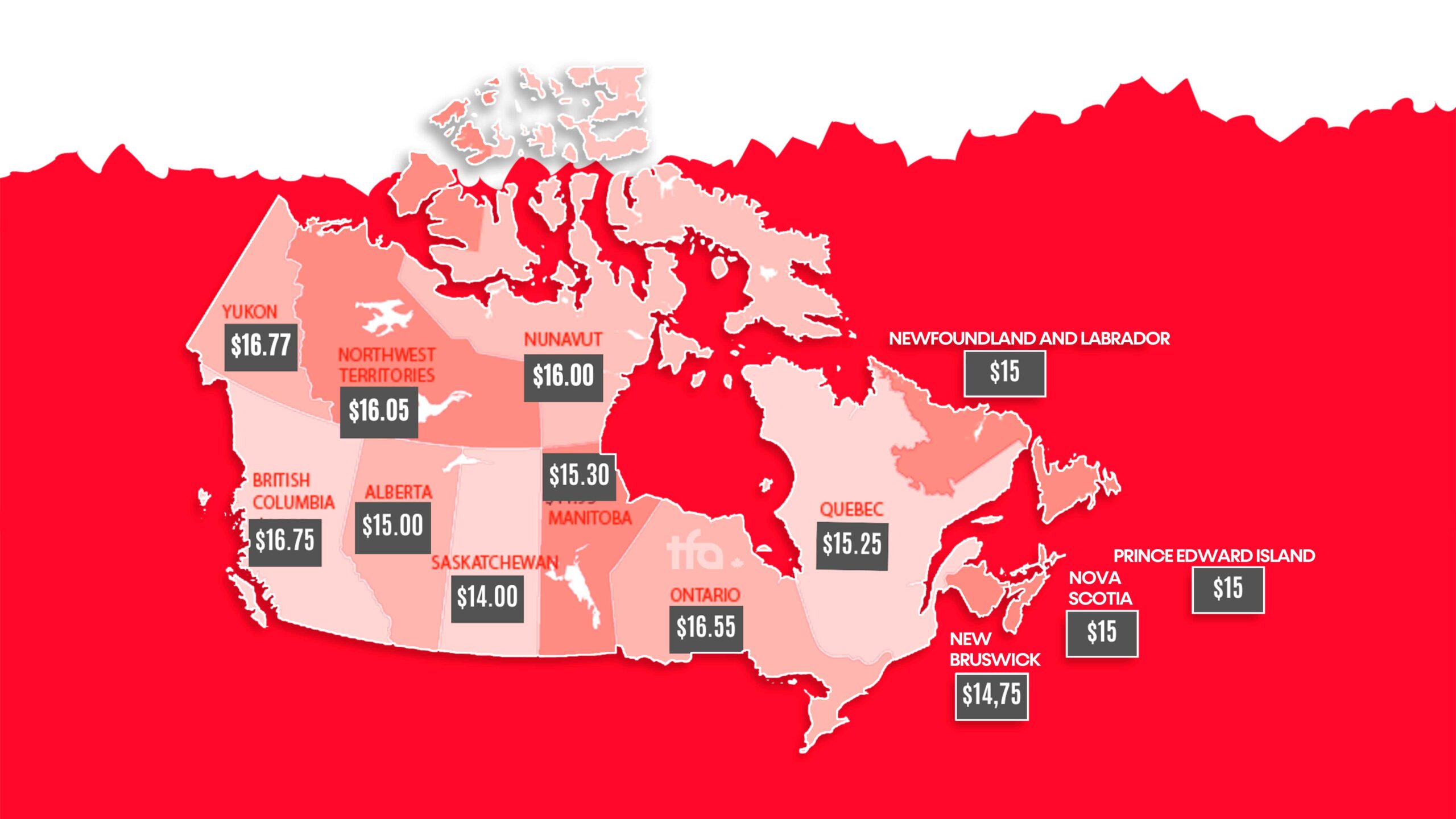WORK
WANT TO WORK IN CANADA?
TFA MAY HELP YOU
The idea of Working in Canada is quite attractive.It is a lifelong goal for many foreign workers looking for an enriching multicultural professional experience. Every year, more than 300,000 people are allowed to work in Canada. The Work Permit, or Work Visa, allows foreign nationals, such as certain foreign workers and students, to work in Canada on a temporary basis.
Check below the options for visa/permit should you wish to come to Canada to Work.
Count on the assistance of the TFA team to take care of your process, conducting your entire application correctly and safely.
WORK VISA (W-1)
OPEN WORK PERMIT (OWP)
WORK WHILE STUDY
CO-OP WORK PERMIT (SW-1)
POST-GRADUATION WORK PERMIT (PGWP)
YOUTH INTERNATIONAL EXPERIENCE CANADA - IEC
LABOUR MARKET IMPACT ASSESSMENT (LMIA)
EMPLOYER-SPECIFIC WORK PERMIT
BRIDGING OPEN WORK PERMIT (BOWP)
TEMPORARY WORKERS VISA
RELIGIOUS WORK PERMIT
CAREGIVER - TEMPORARY WORKER
The minimum Wage of each Province and Territory

Achieve your career goals

Book a specialized career consultation focused on the Canadian job market with Cibelly Zedan, an international career specialist. Ideal for students and professionals who want to assertively achieve their goals.

Book a specialized career consultation focused on the Canadian job market with Cibelly Zedan, an international career specialist. Ideal for students and professionals who want to assertively achieve their goals.
TAKE THE FIRST STEP
TOWARDS CANADA
Fill in your details to receive more information regarding our immigration assistance service fees.
TAKE THE FIRST STEP
TOWARDS CANADA
Fill in your details to receive more information regarding our immigration assistance service fees.
Sharing our clients’ experiences


Frequently Asked Questions about Working in Canada
Frequently Asked Questions about Working in Canada
No. The spouse/spouse holding the Open Work Permit may work until the permit expires.
Yes, you can work as a self-employed person.
Yes, you can work for multiple employers in multiple locations across Canada.
Yes, it is necessary to update several documents as well as acquire new ones (such as compliance fee payment by the employer). We will be able to reuse as much as possible, but it is essential to try to keep all documents as up-to-date as possible.
An Employer-Specific Work Permit only allows you to work for a specific employer who was previously informed in the LMIA or provincial appointment process, so you cannot work for another employer other than the one listed on your Employer-Specific Work Permit.
The validity of the PGWP can be issued based on the duration of the study program from a minimum of 8 months to a maximum of 3 years. Generally speaking, if you are graduating from a one-year equivalency course, you can apply for a one-year PGWP. If your program’s equivalency is 18 months or more, you can apply for a PGWP for 3 years. Exceptions apply*.
To apply to extend the spouse’s work permit, the primary applicant must have a job offer at NOC 0, A or B, evidenced with a letter from the employer and the most recent 3 paychecks.
Applications for visas/work permits do not require financial proof, but if there is a member of your family who will apply for a Visitor Record or Study Permit, it is recommended to add proof as these types of applications do.
Applications for PGWP for Child Care and Caregiver positions, or related to healthcare jobs, require inclusion of the Immigration Medical Exam to be processed, even if the person is already in Canada.
If applied via outside, the medical examination is required for people who intend to stay for more than 6 months. Internally, currently only work permit applications made for work or internship for Child Care, Caregiver and other Health Care sectors usually require inclusion of the Medical Exam to be processed, even if the person is already in Canada.


